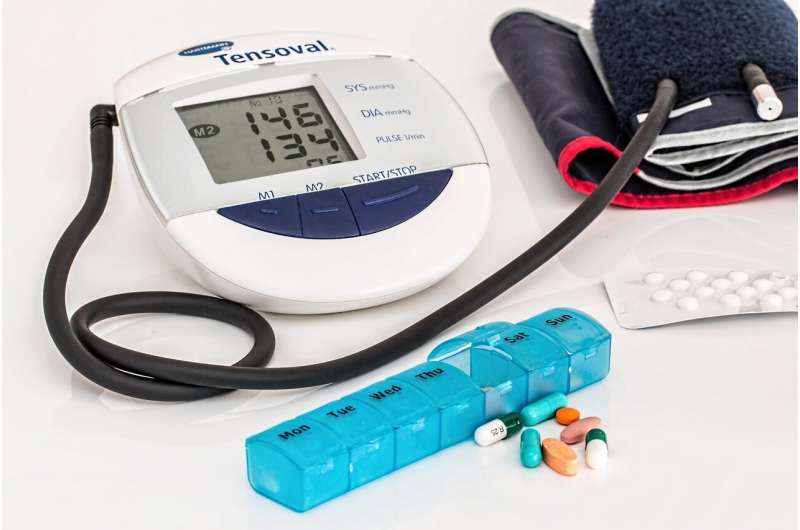Credit: CC0 Public Domain
All adults with endocrine disorders should be tested for high cholesterol and triglycerides to evaluate their risk of heart attack or stroke, according to a Clinical Practice Guideline issued today by the Endocrine Society.
The guideline, titled "Lipid Management in Patients with Endocrine Disorders: An Endocrine Society Clinical Practice Guideline," was published online and will appear in the December 2020 print issue of The Journal of Clinical Endocrinology & Metabolism (JCEM), a publication of the Endocrine Society. This guideline provides an approach to assessing and treating high cholesterol and triglycerides in patients with endocrine diseases like hypothyroidism, menopause and Cushing's syndrome.
Apart from diabetes, many endocrine diseases are not mentioned in cholesterol management guidelines. Our guideline addresses this gap in information and has three main objectives: describe lipid abnormalities and cardiovascular risk in patients with endocrine diseases; assess whether treatment of the underlying endocrine disorder improves the lipid profile and/or lowers the risk of cardiovascular disease; and discuss the evidence for using cholesterol and triglyceride lowering medications, in addition to diet and exercise, in patients with these endocrine diseases.
"This guideline is the first of its kind. We hope that it will make a lipid panel and cardiovascular risk evaluation routine in adults with endocrine diseases and cause a greater focus on therapies to reduce heart disease and stroke," said Connie Newman, M.D., of the New York University Grossman School of Medicine in New York, N.Y. Newman is the chair of the committee that wrote the guideline.
Recommendations from the guideline include:
Obtain a lipid panel and evaluate cardiovascular risk factors in adults with endocrine disorders.Start statins earlier in patients with type 2 diabetes and risk factors for cardiovascular disease.Consider statin therapy at a younger age in adults with type 1 diabetes who have obesity, or vascular complications, or a 20-year history of diabetes.Rule out hypothyroidism before treatment with lipid-lowering medications. In patients with hypothyroidism, re-evaluate the lipid profile when the patient has thyroid hormone levels in the normal range.Monitor the lipid profile in adults with Cushing's syndrome and consider statin therapy in addition to lifestyle modifications if Cushing's syndrome persists after treatment.To treat high cholesterol or triglycerides in post-menopausal women, use statins rather than hormone therapy.Evaluate and treat lipids and other cardiovascular risk factors in women who enter menopause early (before the age of 40-45 years).
More information: Connie B Newman et al. Lipid Management in Patients with Endocrine Disorders: An Endocrine Society Clinical Practice Guideline, The Journal of Clinical Endocrinology & Metabolism (2020). DOI: 10.1210/clinem/dgaa674
Journal information: Journal of Clinical Endocrinology & Metabolism
Provided by The Endocrine Society




















